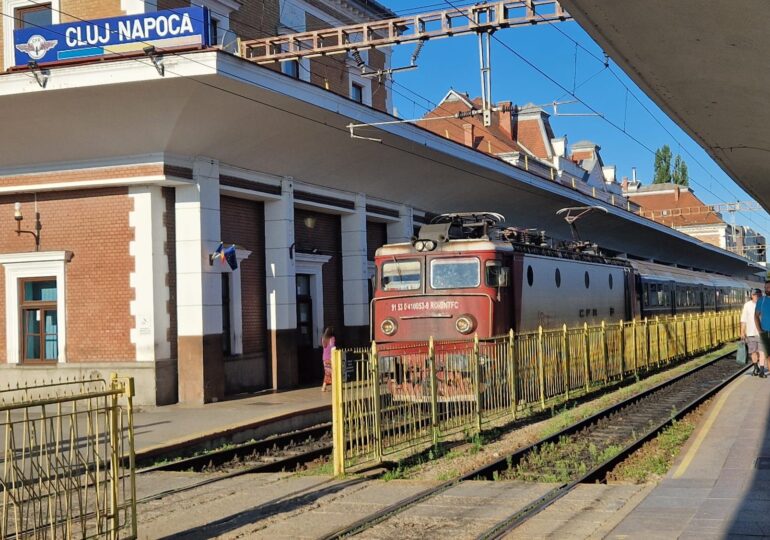Although Romania has managed to build over 500 kilometers of highways and express roads from European funds, „not a single meter of new railway track has been built” in the railway sector, points out Mihai Barbu, the President of the Railway Reform Authority (ARF).
In an interview with Agerpres, Barbu strongly criticizes the huge delays of the Alstom company in delivering the Coradia trains and accuses unjustified salary expenses at CFR Calatori, while passenger conditions remain unacceptable.
Uncollected Penalties from Alstom
The delivery of the 37 Coradia Stream electric trains contracted by Romania from Alstom is delayed by at least two years, and only three trains have arrived in the country so far - of which only one is actually in operation.
Barbu argues that Alstom should pay penalties of tens of millions of euros, but currently no invoice has been issued. "The initial deadline was 2024, it was extended through an additional agreement until January 2026, but without a clear delivery schedule. We now have a dispute with Alstom on this matter," says the head of ARF.
In contrast to Alstom, the Polish company PESA respects deadlines. 14 trains will be delivered to Romania in 2025, and the first one could enter service in early 2026.
"The distribution of the 62 regional trains is already established - CFR Calatori will receive 34 of them," specifies Barbu.
Huge Subsidies for Modest Results
The Romanian state paid a compensation of 2.7 billion lei in 2024 for passenger rail transport, of which 2.13 billion went to CFR Calatori. At the same time, the company stopped over 200 trains, reduced the annual distance by three million kilometers, but increased the management allowances by over 3.5 million lei, points out Barbu. Each of the seven members of the Board of Directors and the two directors receive around 32,000 lei monthly.
The ratio between the number of employees and the kilometers traveled highlights the inefficiency of the state company. "Private operators account for 26.5% of the market and cover 17 million kilometers with a total of 1,560 employees, while the state operator has 73.5% of the market with 47 million kilometers and 10,500 employees. The calculation is simple, if we refer to the private operators who, you should know, also make quite good profits. And I can also tell you, regarding CFR Calatori, that to a large extent the employees are professionals, serious and dedicated to their profession," says Barbu.
Passengers Without Air Conditioning and Slow Trains
Barbu criticizes the lack of empathy towards passengers, especially when trains like the one on the Bucharest-Constanta route recently operated without air conditioning. The ARF chief says it is not reasonable to ask for extra money and higher salaries for management while passenger conditions deteriorate.
Moreover, Romania continues to subsidize all routes, including profitable ones like Bucharest-Brasov, instead of directing support to truly vulnerable areas.
Imbalanced Investments in Infrastructure
Barbu raises an alarm about the gap between road and railway investments. "Around 500 km of new highways and express roads were built from POIM. And only 170 km of railway track were rehabilitated from POIM. Rehabilitated. And not a single meter of new railway track was built," he emphasizes.
In the absence of modern infrastructure, new trains risk running at only 40 km/h. "We buy new rolling stock, we buy new, beautiful trains, but they will run at 40 km/h on some sections," Barbu further states.
Risk of Losing Funds from PNRR
ARF is under pressure to finalize acquisitions by the end of PNRR. Barbu has requested strict delivery deadlines from suppliers and warns that additional sources of funding will be needed to continue fleet modernization afterwards.
Regarding internal tensions within ARF, Barbu claims that the situation has stabilized since his appointment. Conflicts were caused by the lack of leadership, but now employees know they have someone to discuss with, he says. At the same time, Barbu insists that internal issues should not be turned into public scandals, but rather resolved institutionally.

